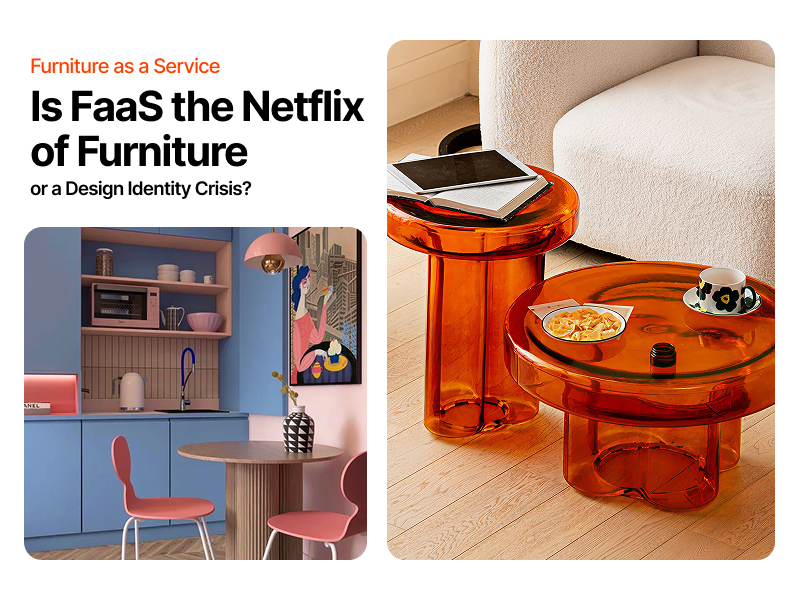Menu
11-12-13 June, 2026
EXPO CENTRE, SHARJAH United Arab Emirates
Menu
EXPO CENTRE, SHARJAH United Arab Emirates

First, it was your music. Then your car. Now… maybe even your sofa? The rise of Furniture‑as‑a‑Service (FaaS) is flipping the furniture script. It’s not just a rental for students anymore—it’s going corporate and global. Welcome to the “subscribe to furniture” era.
At its core, FaaS lets organizations and consumers rent or subscribe to furniture, rather than buying it outright. You use it. They own it. They service it. You move on when you like. Circuly describes it as offering “access without the ‘own it forever’ factor.” (Source: circuly.io)
Take Ahrend, for example, they ask: “If you don’t own your building, your company car, your printer, why still buy your office furniture?” Under their model, they retain ownership and concentrate on reuse and refurbishment. (Source: Ahrend)
This isn’t just about trendy lounge chairs in co‑living spaces. FaaS is gaining traction in the corporate real estate world, especially as hybrid work, changing space‑needs and sustainability demands push companies to rethink furniture. The article from WorkDesign sums it up: “Access instead of ownership already defines how we think about everything… so why can’t furniture join the list?” (Source: Work Design Magazine)
From global firms leasing entire office fit‑outs to hotels swapping furniture seasonally, FaaS has left the rental shackles and gone international. The global supply chain is shifting too, as Global Trade Magazine reports, “FaaS models allow businesses to lease instead of buying, reducing waste.” (Source: Global Trade Magazine)
The furniture industry isn’t just a sale‑and‑forget business anymore. It’s becoming a service‑and‑resell business.
FaaS aligns perfectly with circular models. Ahrend keeps track of furniture via QR codes, re‑uses it, and claims to reduce CO₂ emissions by up to 40% per year. (Source: Ahrend)
In a world of short leases, changing teams and remote/hybrid work, companies prefer furniture they can return or swap rather than being stuck with a fixed asset. CORT describes FaaS for offices like “Subscribe to furniture on your terms™.” (Source: CORT Furniture Rental Blog)
Furnishing multiple offices across continents? Buying doesn’t scale well. Leasing through service models means brands can deploy once, refurbish, and redeploy in another region.
If you don’t own your furniture, do you own your space? Is your brand’s identity tied to leasing? The article asks: “is FaaS the Netflix of furniture or the start of a design identity crisis?”
Sure, flexibility is great. But if every boardroom chair is from a subscription, does it feel bespoke? Does it feel personal? Furniture brands now must design for lifespan, resale value, and multiple users—not just first‑buyer love.
Furniture Brands, Exhibitors & Designers —
The real question is: urgency or irrelevance?
Flexibility. Sustainability. Global reach. If your furniture doesn’t tick those boxes, someone else’s brand will.
Ready to step into the future of furnishings, not just the present?
Book your stand at HIVE 2026. Tap into the mindset that furniture is a platform rather than just a possession.
Stay ahead of the curve with The Hive Times, your ultimate source for the latest industry buzz, stylish innovations, and trendsetting designs!
6th Edition 11-12-13 June, 2026
10:00 AM to 06:00 PM Expo Centre, Sharjah, United Arab Emirates
Largest Furniture
Trade Fair for the
Middle East & Africa




WhatsApp us